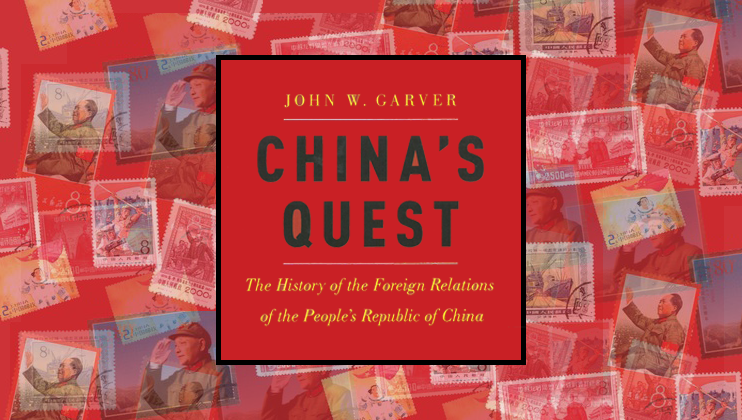Thursday, April 14, 2016 | 5:30 PM EDT - 7:00 PM EDT
National Committee on U.S.-China Relations |, New York, NY
When the People’s Republic of China was established in 1949, China was in a state of disarray. Decades of occupation and civil war had left the country fractured, famished, and impoverished. The new nation embarked on an ambitious effort to overhaul its economic and political systems. While its domestic agenda was the priority for the Communist Party of China, China had, of course, to develop a foreign policy, particularly to deal with the world’s capitalist countries in the midst of the Cold War.
With memories of the “century of humiliation” fresh in Chinese people’s minds, countering inroads of Western bourgeois liberalism was at the top of the international agenda during the early years of the PRC. As the Cold War evolved, however, so, too, did China’s foreign policy concerns. Following Stalin’s death, China’s leadership grew increasingly skeptical of the Soviet Union, its erstwhile “big brother” and ally, and the intentions of its new Premier, Nikita Khrushchev. The Sino-Soviet split exposed what author and scholar John W. Garver considers the real force shaping the PRC’s foreign policy: regime survival. While many political scientists have analyzed China’s approach to the split through a realist lens, focusing on national interest, Dr. Garver argues that de-Stalinization in the Soviet Union threatened the ideological foundation of the Chinese communist regime.
A leading scholar of Chinese foreign policy, John Garver has written an authoritative study of the PRC’s foreign relations in China’s Quest: History of the Foreign Relations of the People’s Republic of China. He argues that domestic politics and regime survival have consistently served as the drivers of China’s foreign policy. Dr. Garver explored this dynamic history, and analyzed China’s current foreign policy initiatives, with the National Committee on April 14, 2016 in New York City.

John W. Garver
John W. Garver is emeritus professor of political science in the Sam Nunn School of International Affairs at the Georgia Institute of Technology. He served for many years on the editorial boards of China Quarterly, the Journal of Contemporary China, Issues and Studies, and Asian Security. His research focuses primarily on China’s foreign relations, a topic on which he has published eleven books and over a hundred journal articles and book chapters. He has concentrated on China and the Middle East, China and India, and China and Taiwan, among other parts of the world.
His books include: China and Iran: Ancient Partners in a Post-Imperial World (2006); The Protracted Contest: China-Indian Rivalry in the Twentieth Century (2001); Face Off: China, the United States, and Taiwan’s Democratization (1997); The Sino-American Alliance: Nationalist China and US Cold War Strategy in Asia (1997), The Foreign Relations of the People’s Republic of China (1993), and China’s Decision for Rapprochement with the United States (1982).
Dr. Garver received his doctorate in political science from the University of Colorado, and bachelor’s degrees in political science and psychology from Oklahoma State University. He is a member of the National Committee on U.S.-China Relations.
Copies of China’s Quest will be available for purchase after the program.
